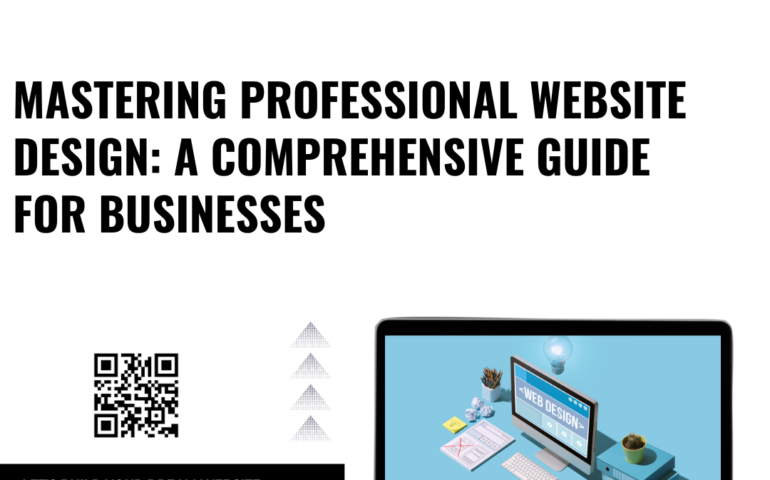
Professional Website Design

In today’s digital era, having a professional website design is crucial for any business aiming to establish a strong online presence. Indeed, the design of your website not only reflects your brand identity but also influences customer behavior. Therefore, understanding the key elements of professional website design can significantly impact your business success.
Understanding the Importance of Professional Website Design
First and foremost, professional website design is essential for creating a positive first impression. Studies show that visitors form an opinion about your site within the first few seconds of browsing. If the design is cluttered or outdated, it could lead to a high bounce rate. Consequently, ensuring that your website is visually appealing and user-friendly is paramount.
Key Elements of Effective Website Design
- User Experience (UX): At the heart of professional website design is a strong focus on user experience. A well-designed website should be easy to navigate and intuitive for the user. This means having a clear structure, logical navigation paths, and interactive elements that are easy to engage with. As a result, users are more likely to stay longer and explore what your business has to offer.
- Responsiveness: Another critical aspect is the responsiveness of the design. With the increasing use of mobile devices to access the internet, your website must perform well on smartphones, tablets, and desktops alike. Therefore, responsive design ensures that your site looks great and functions properly across all devices, thereby enhancing user engagement.
- Aesthetics: Visual appeal is also vital. The right use of colors, fonts, and images can convey your brand’s message and attract your target audience. Consequently, a professionally designed website should align with your brand’s style guide to maintain consistency across all pages.
- Speed and Optimization: Page speed is another crucial factor. Websites that load quickly provide a better user experience. Moreover, search engines like Google prioritize faster websites in their search results. Therefore, optimizing images, minifying CSS and JavaScript, and leveraging browser caching can help improve your site’s loading times.
- Content Quality: High-quality, relevant content is indispensable in professional website design. Your content should not only be engaging and informative but also optimized for search engines with the appropriate use of keywords, meta tags, and headings. Thus, a well-thought-out content strategy can significantly boost your SEO efforts.
Best Practices for Professional Website Design
Implementing the following best practices can elevate the quality of your website design:
- Keep It Simple: A clean, uncluttered design goes a long way. It makes your website not only look more professional but also easier to use.
- Focus on Typography: Good typography improves readability and the overall aesthetic of your site. Therefore, choose fonts that are easy to read and visually appealing.
- Use High-Quality Images: Images can communicate more than words. Using high-resolution images that reflect your brand can greatly enhance the look and feel of your site.
- Consistent Branding: Ensure that your website reflects your brand consistently in all aspects, including color schemes, font choices, and layout styles.
- Regular Updates: Keeping your website updated with the latest information and technologies is essential for maintaining its relevance and effectiveness.

Learning Professional Website Design
In summary, professional website design is not just about aesthetics; it’s about ensuring functionality, improving user experience, and optimizing your site for better search engine visibility. By following these guidelines, you can create a website that not only looks professional but also performs excellently in today’s competitive market.
If you want to read more information about how to boost your website traffic, just visit –> TekHive





